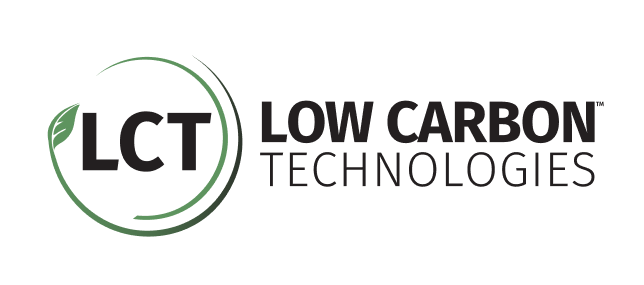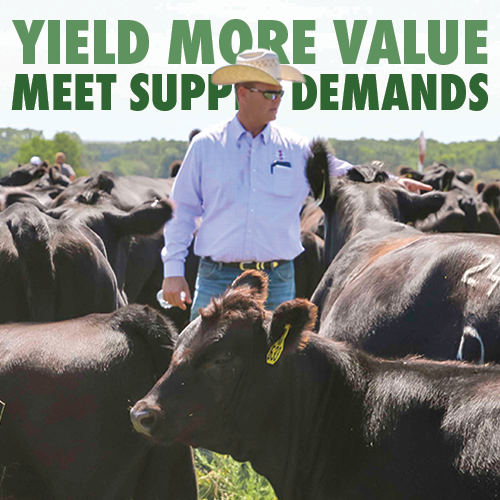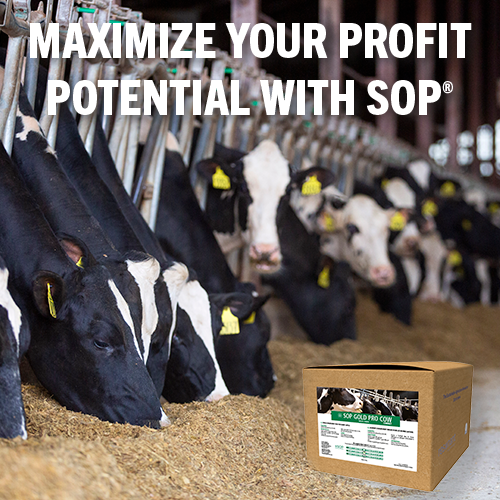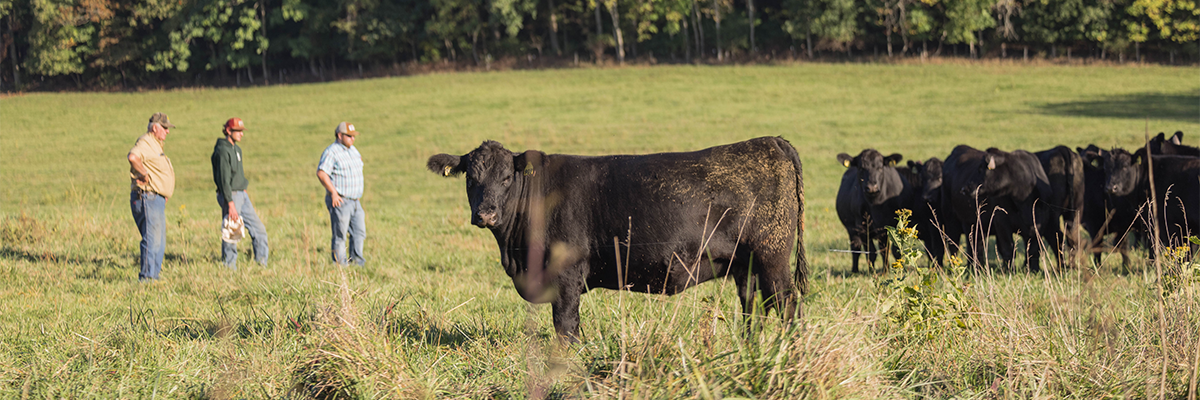
USDA Climate-Smart Commodities Pilot Program
Reimagining
Tomorrow's
Beef Climate
Embracing a climate-smart approach to beef production not only prioritizes environmental responsibility, but ensures product quality and producer profitability remain uncompromised. Guided by the United States Department of Agriculture (USDA) Processed Verified Program (PVP) and life cycle assessment (LCA) under the Low Carbon Beef program, join us in developing a new standard for beef rooted in tradition.
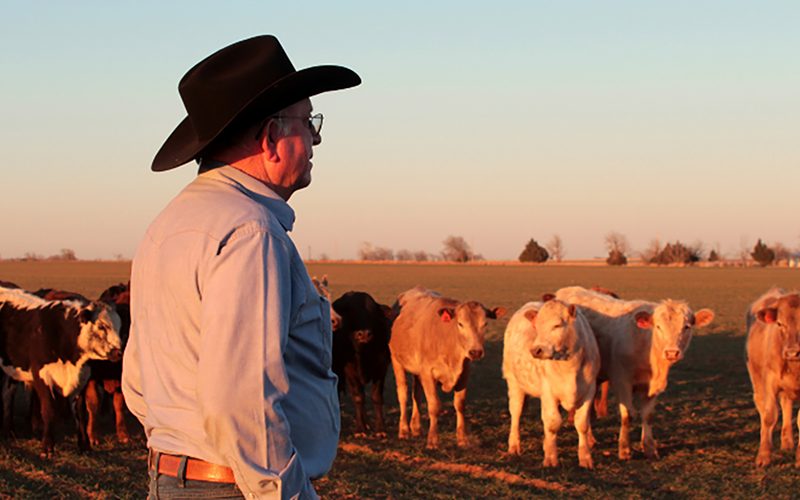
Pilot Overview
In 2022, the USDA launched the Partnerships for Climate-Smart Commodities program. The purpose is to expand markets and leverage greenhouse gas (GHG) emissions reduction for America’s climate-smart commodities, providing direct, meaningful benefits to production agriculture. Low Carbon Technologies (LCT) was a grant recipient and has partnered with a consortium of industry leaders to demonstrate end-to-end climate-smart beef production by executing a fully integrated life cycle approach to reduce beef cattle emissions at commercial scale.Pilot Goals
Beef cattle qualify for the Low Carbon Beef USDA PVP certification if they exhibit at least a 10% reduction of GHG emissions below the U.S. industry baseline. This ambitious five-year pilot program will serve as a PVP proof of concept that:
1. demonstrates beef can actually be produced with 50% less GHG emissions with commercial agricultural practices

Frequently Asked Questions
In order to meet our ambitious goals, we have partnered with equally ambitious partners. It takes a team to scale the implementation of climate-smart practices and collect data-driven results across the beef supply chain. These industry leaders in cattle genetics, land management, renewable energy, animal nutrition and consumer marketing are helping producers make more green for being green.
2024 Grant Partners
LCT is the USDA Climate-Smart Commodities Pilot Program managing partner.
Select Sires Inc.
Based in Plain City, Ohio, Select Sires Inc. is committed to enhancing the productivity and profitability of dairy and beef producers. Highly fertile semen and genetic consultation are provided by three farmer-owned and -controlled cooperatives domestically, while World Wide Sires, Ltd. delivers international service. As the industry leader, Select Sires Inc. supplies farmers and ranchers with the world’s best genetics, services and programs.
Agspire and Millborn Seeds
AgSpire offers a systems-based approach to assist landowners in adopting regenerative practices in cropping and grazing systems. Millborn Seeds is focused on providing a diverse set of seed solutions to address a wide array of resource concerns, offering high-quality seed products, a unique, vertically integrated supply chain and a team of experts who understand producers’ business goals and how to achieve them. Both partners will source the appropriate multispecies seed mix for each producer’s selected land intervention.
Vytelle
As a precision livestock company, Vytelle is reshaping how cattle producers worldwide optimize their herds through integrated technology. With a multibreed feed efficiency database featuring 29 breeds, cattlemen can optimize animal performance, increasing profits with fewer inputs and reducing methane emissions.
Elanco
Herd health and nutrition play a critical role in efficient beef production systems and reducing GHG emissions. Elanco will assist participating producers in developing herd health and nutrition plans to meet USDA Climate-Smart Commodities Pilot Program goals.
Tiffany Cattle Company, Inc.
Tiffany Cattle Co. is a complete cattle feeding and marketing service located in Herrington, Kansas. Owned and operated by brothers Shawn and Shane Tiffany, Tiffany Cattle Co. provides custom feeding services for customers who retain ownership of cattle until harvest. Shawn and Shane have extensive experience working with certification programs such as natural, Non-Hormone Treated Cattle (NHTC) and Certified Angus Beef®. They routinely collaborate with Where Food Comes From to manage program-type animals in the growing and finishing stages.
Alga Biosciences
Enteric methane emissions are the largest source of GHG emissions in conventional beef production and recent research has demonstrated that seaweed can reduce methane emissions by up to 100%.1-4 Alga Biosciences is decreasing agricultural methane emissions using one of the most scalable resources on the planet: algae. Alga uses modified seaweed to become functionally identical to Asparagopsis taxiformis. The proprietary cattle feed additive is shown to successfully reduce methane while maintaining animal health and growth. Proprietary research evidence shows that Alga’s anti-methane additive nearly eliminates methane emissions.
Helical Solar Solutions
Helical Solar Solutions is a Texas-based renewable energy company that has developed solar power solutions for rural and agricultural applications. With elevated panels to support agrivoltaics, the array can withstand high winds, articulate 360o horizontally and up to 90o in elevation. The solar solution also includes proprietary snow mitigation features.
Where Food Comes From and IMI Global
IMI Global, a division of Where Food Comes From, is a publicly traded third-party verification and traceability company that offers a variety of certifications for the beef industry. Offerings include breed, source and age verification, NHTC, Verified Natural Beef (VNB), CARE Certified and more. LCB Enrolled, also offered by IMI Global, certifies stocker and feeder calves as promising candidates for the LCB USDA PVP.
Interested in joining the pilot program?
Eligibility Requirements
- Located in the U.S.
- Able to register your operation with the USDA Farm Service Agency (FSA)
- Have a minimum herd size of 50 cows
- Prepared to comply with pilot program conditions including breeding cattle with high-performance genetics, maintaining animal records, adopting at least one climate-smart planting and submitting the necessary records and data for certification
Preferred Qualifications
- Align with criteria encompassing diversity or underserved sectors, including small-scale, beginner, veteran or minority demographics
- Are a retained ownership producer
- Have existing relationships with consortium partners
- Able to feed supplements and access a reliable cattle scale
Enroll to receive project product and service reimbursements!
- Up to $45 per head for high-performance Select Sires genetics and A.I. breeding services
- Up to $5,000 toward the purchase of each natural service sire, one per 50 cows
- Up to $100 per acre for cover crop, forage and range plantings
- Access to marketing premiums including $45 for each weaned calf and $145 for fed cattle
- Rebates for Elanco herd health products such as vaccines and implants
- Complimentary Beef CARE and LCB Enrolled certification of pilot program calves
- Vytelle In-Pen Weighing Positions scale installation, support, data collection and analysis at no cost
- Assistance in developing nutrient and grazing management plans, including soil sampling
- Access to a custom feedlot to finish pilot program cattle with finance and hedging options
Reimbursements are offered exclusively to registered pilot program participants only. Values are subject to change without notice.
Ready to enroll or have questions about the process?
To learn more about the pilot program and how to get involved, please contact LCT.
Curious about the USDA's climate-smart initiatives?
For questions regarding the Partnerships for Climate-Smart Commodities program or to view all active projects, please visit the website below.
PRODUCT INFORMATION
For all products: The label contains complete use information, including cautions and warnings. Always read, understand and follow the label and use directions.
RUMENSIN IMPORTANT SAFETY INFORMATION:
CAUTION: Consumption by unapproved species or feeding undiluted may be toxic or fatal. Do not feed to veal calves.
Growing beef steers and heifers fed in confinement for slaughter:
For improved feed efficiency: Feed 5 to 40 g/ton of monensin (90% DM basis) continuously in a complete feed to provide 50 to 480 mg/hd/day.
For the prevention and control of coccidiosis due to Eimeria bovis and Eimeria zuernii: Feed 10 to 40 g/ton of monensin (90% DM basis) continuously to provide 0.14 to 0.42 mg/lb of body weight/day, depending upon severity of challenge, up to a maximum of 480 mg/hd/day.
Growing beef steers and heifers on pasture (stocker, feeder, and slaughter) or in a dry lot, and replacement beef and dairy heifers:
For increased rate of weight gain: Feed 50 to 200 mg/hd/day in at least 1.0 lb of Type C Medicated Feed. Or, after the 5th day, feed 400 mg/hd/day every other day in 2.0 lbs of Type C Medicated Feed. The Type C Medicated Feed must contain 15 to 400 g/ton of monensin (90% DM basis). Do not self feed.
For the prevention and control of coccidiosis due to Eimeria bovis and Eimeria zuernii: Feed at a rate to provide 0.14 to 0.42 mg/lb of body weight/day, depending upon severity of challenge, up to a maximum of 200 mg/hd/day. The Type C Medicated Feed must contain 15 to 400 g/ton of monensin (90% DM basis).
Type C free-choice medicated feeds: All Type C free-choice medicated feeds containing Rumensin must be manufactured according to an FDA-approved formula/specification. When using a formula/specification published in the Code of Federal Regulations (CFR), a Medicated Feed Mill license is not required. Use of Rumensin in a proprietary formula/specification not published in the CFR requires prior FDA approval and a Medicated Feed Mill License.
Beef cows:
For improved feed efficiency when receiving supplemental feed: Feed continuously at a rate of 50 to 200 mg/hd/day. Cows on pasture or in dry lot must receive a minimum of 1.0 lb of Type C Medicated Feed per head per day. Do not self feed.
For the prevention and control of coccidiosis due to Eimeria bovis and Eimeria zuernii: Feed at a rate of 0.14 to 0.42 mg/lb of body weight/day, depending upon severity of challenge, up to a maximum of 200 mg/hd/day.
TERMS & CONDITIONS
This material is based upon work supported by the U.S. Department of Agriculture, under agreement number NR233A750004G056. Any opinions, findings, conclusions, or recommendations expressed in this publication are those of the author(s) and do not necessarily reflect the views of the U.S. Department of Agriculture. In addition, any reference to specific brands or types of products or services does not constitute or imply an endorsement by the U.S. Department of Agriculture for those products or services. USDA is an equal opportunity provider, employer, and lender.
PATENT NOTICE
Some of the products and services discussed or offered on the Website may be covered by one or more patents and/or are subject to trade secrets and other proprietary rights, whether owned by the Company, its affiliates, or a third party. This includes the Company’s proprietary Life Cycle Assessment program and system for PVP certification, which is protected by U.S. Patent No. 11,209,419 and other pending patent applications. Nothing on the Website, including these Terms of Use, shall be construed as granting any right or license under such patents, patent applications, trade secrets, or other proprietary rights owned by the Company or its affiliates.
TRADEMARK NOTICE
®Certified Angus Beef is a registered trademark.
REFERENCES
1. Roque, B. M. et al. Red seaweed (Asparagopsis taxiformis) supplementation reduces enteric methane by over 80 percent in beef steers. PLoS One 16, e0247820 (2021).
2. Vijn, S. et al. Key Considerations for the use of seaweed to reduce enteric methane emissions from cattle. Frontiers in Veterinary Science vol. 7 Preprint at (2020).
3. Kinley, R. D. et al. Mitigating the carbon footprint and improving productivity of ruminant livestock agriculture using a red seaweed. J Clean Prod 259, 120836 (2020).
4. Machado, L. et al. Identification of bioactives from the red seaweed Asparagopsis taxiformis that promote antimethanogenic activity in vitro. J Appl Phycol 28, 3117–3126 (2016).
